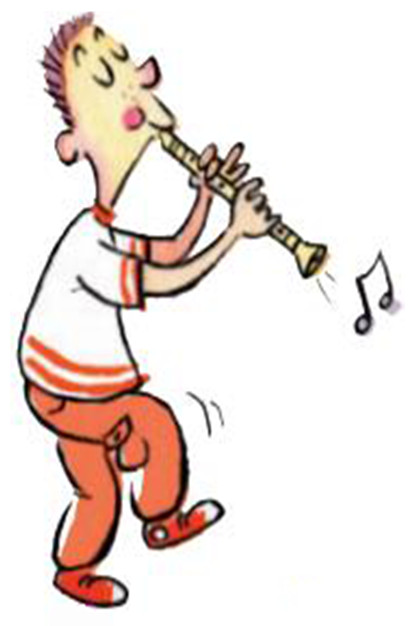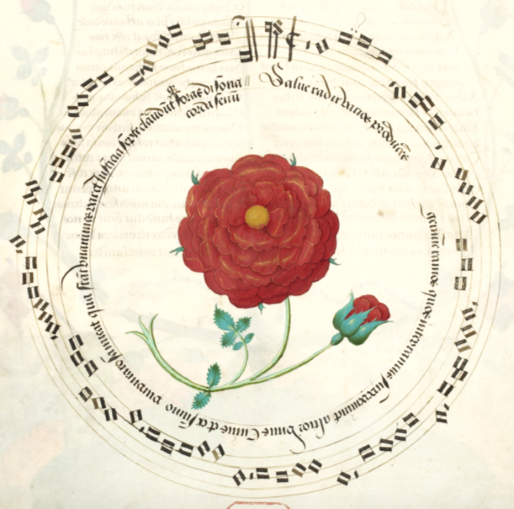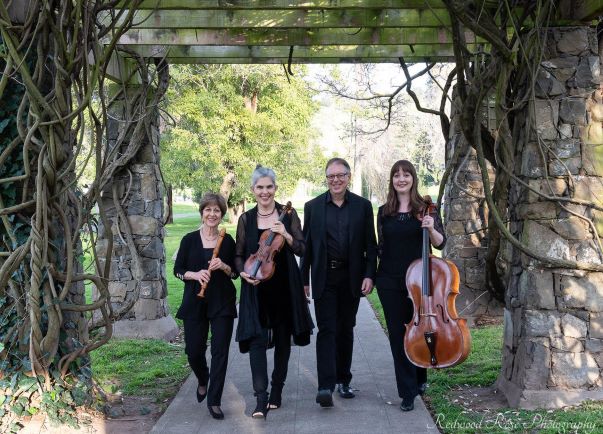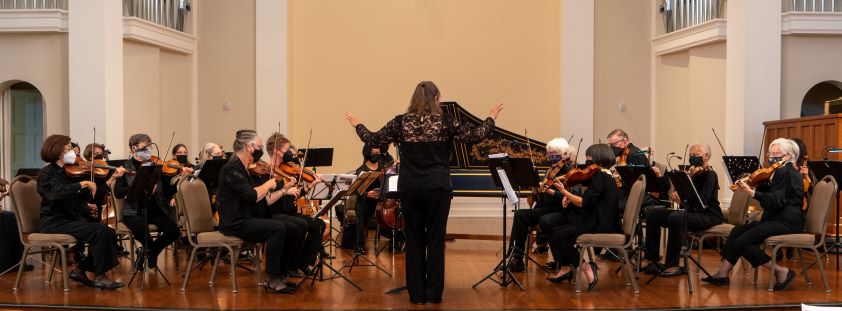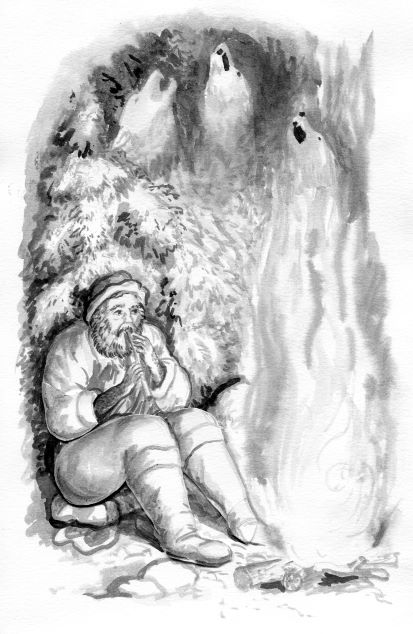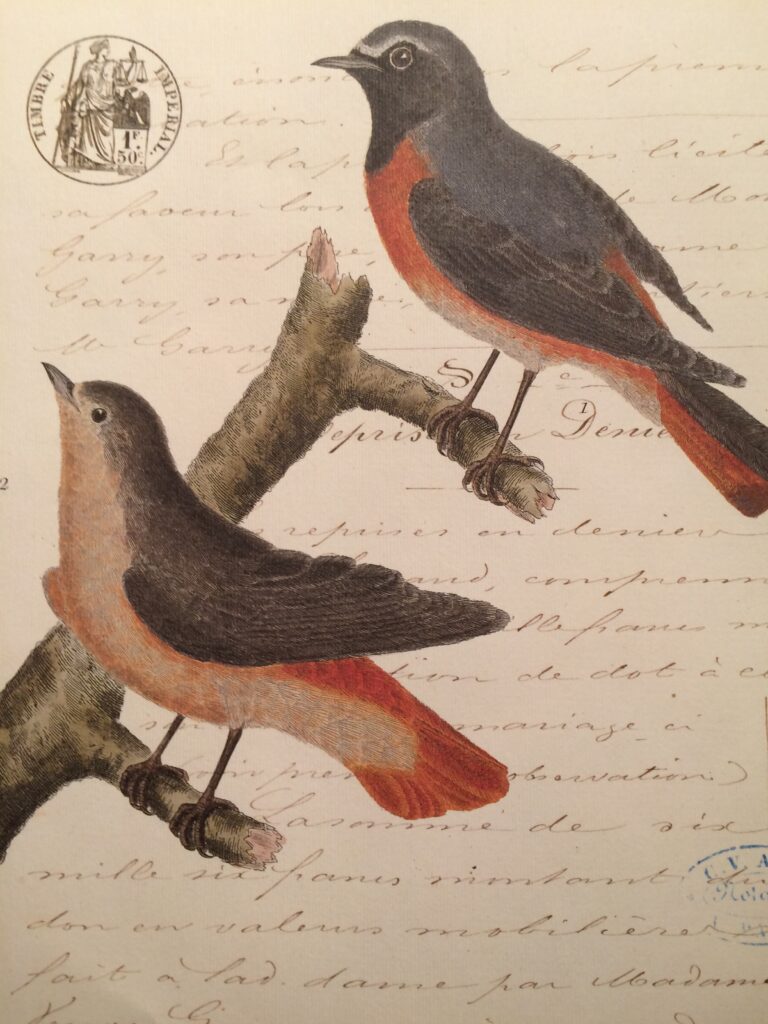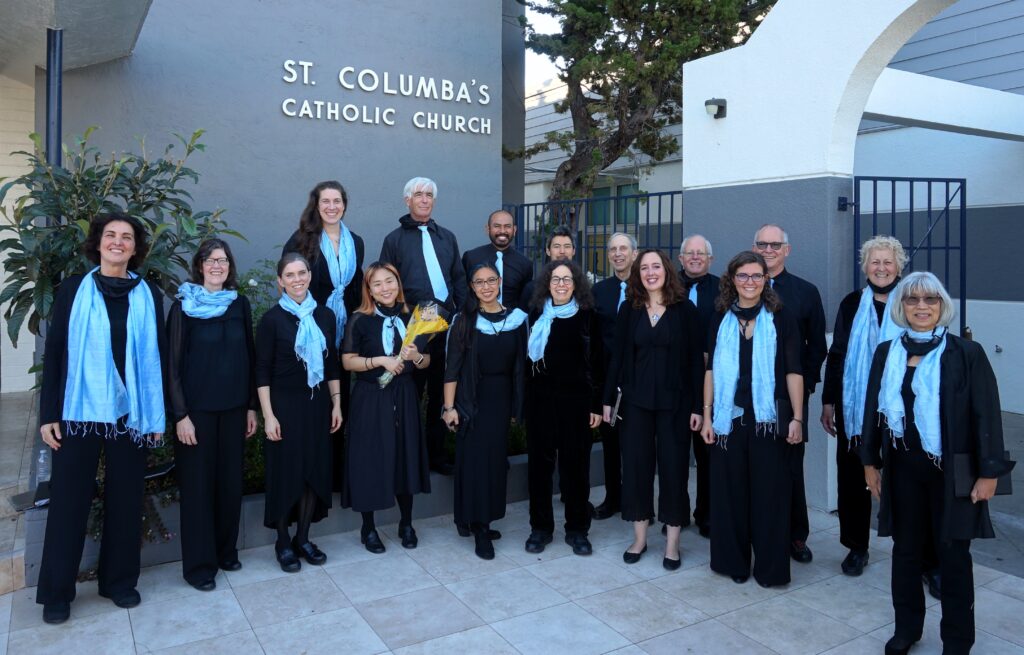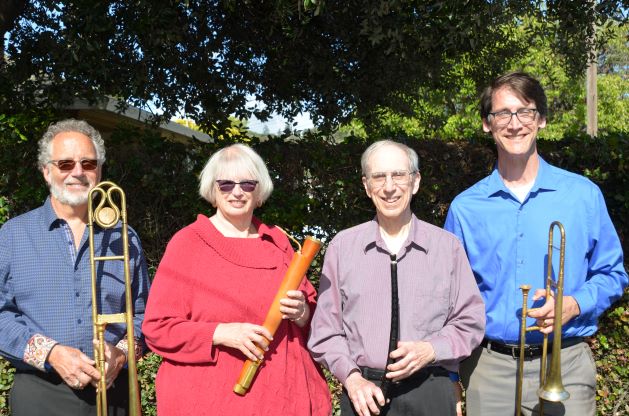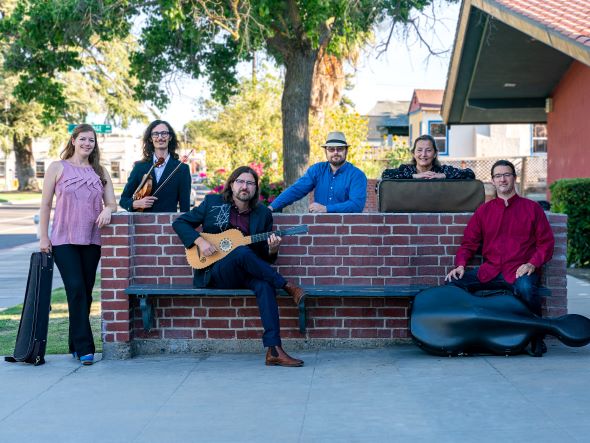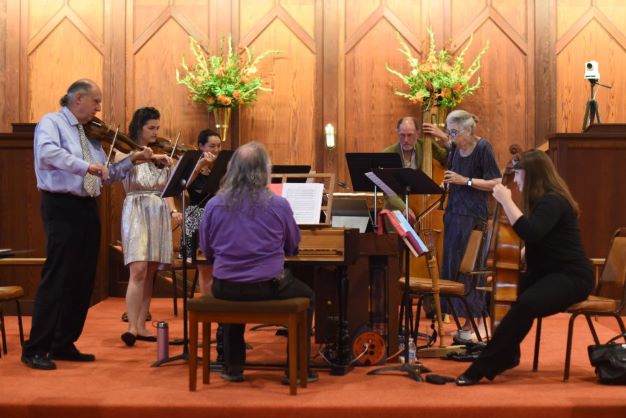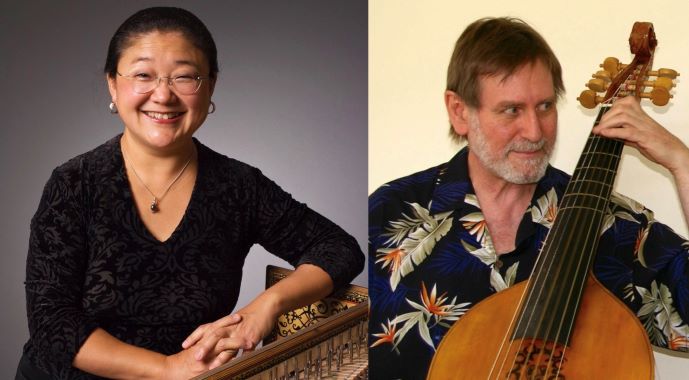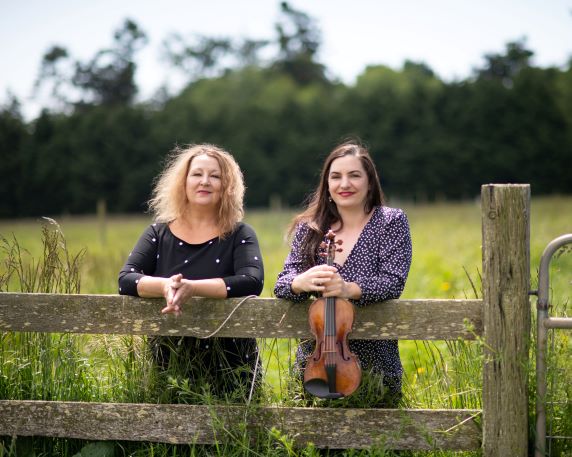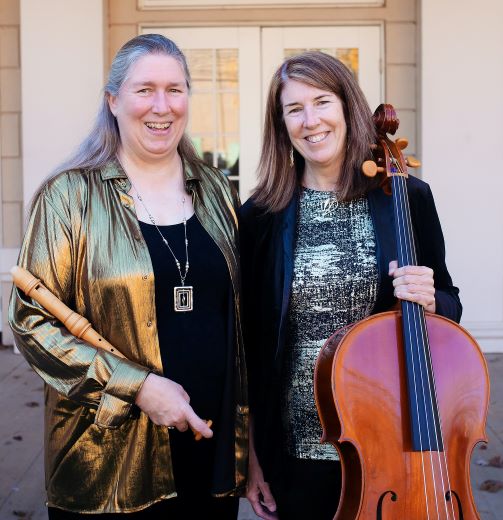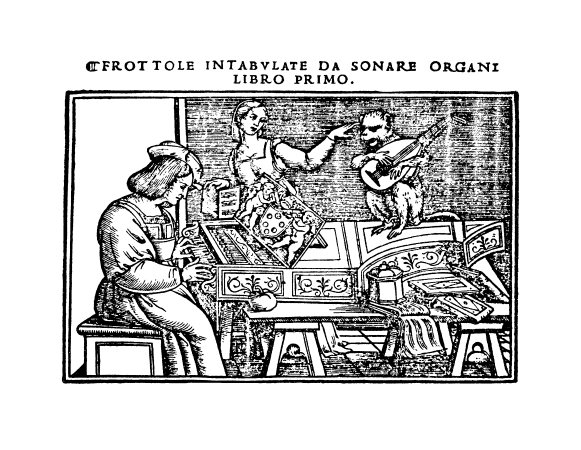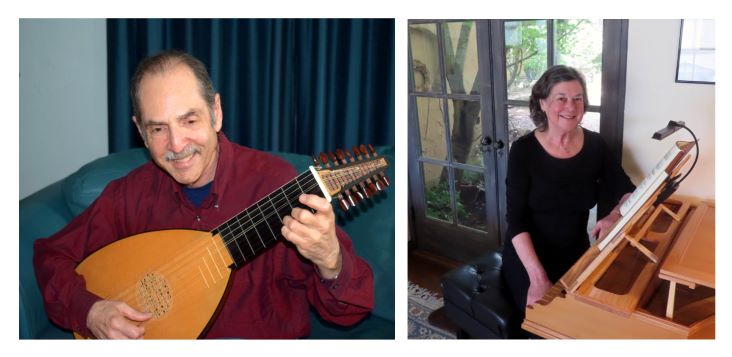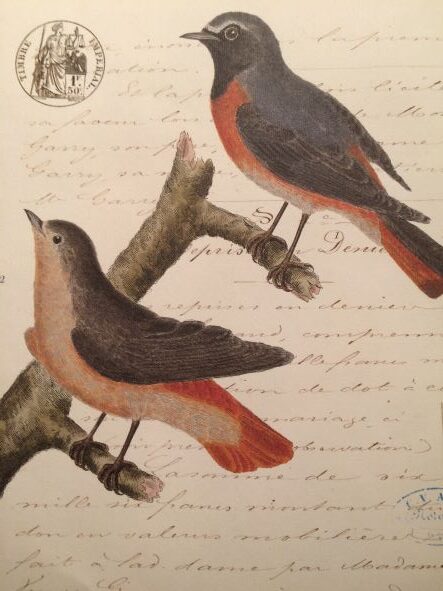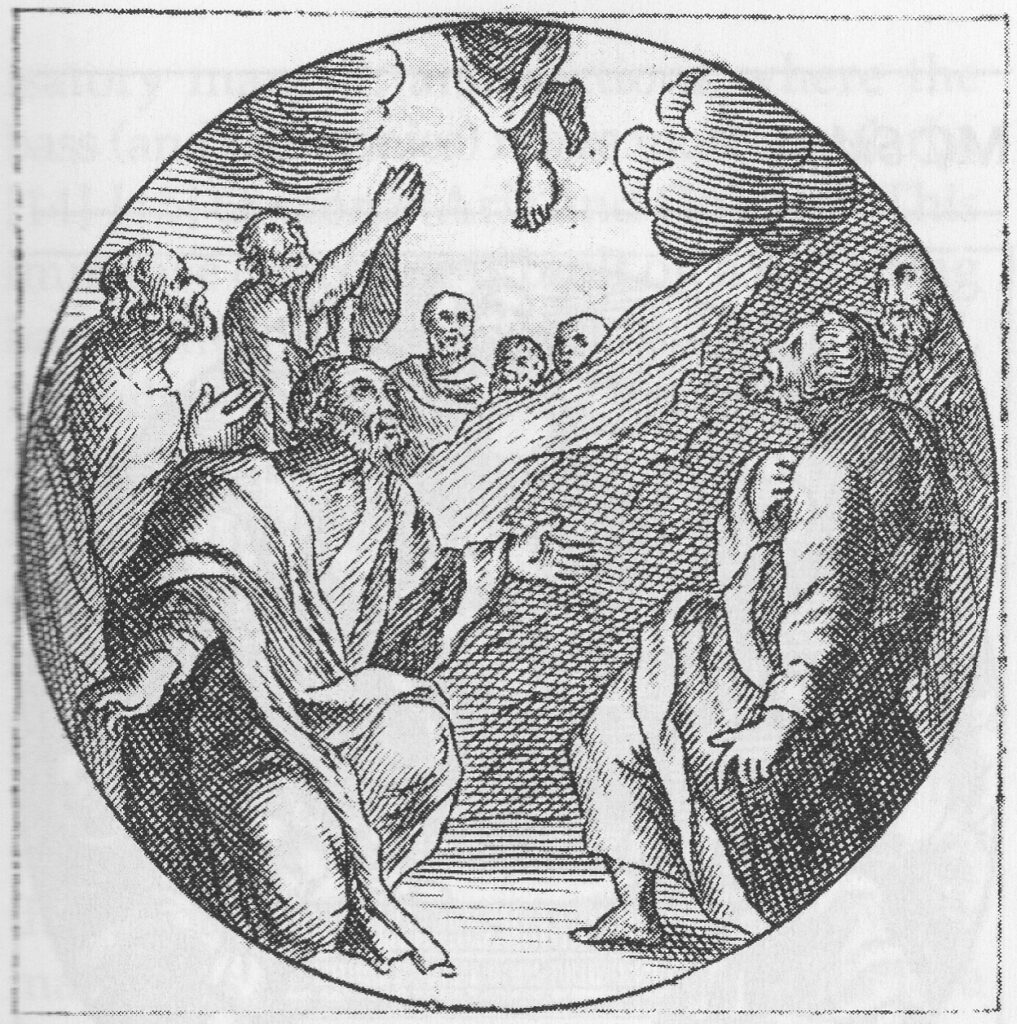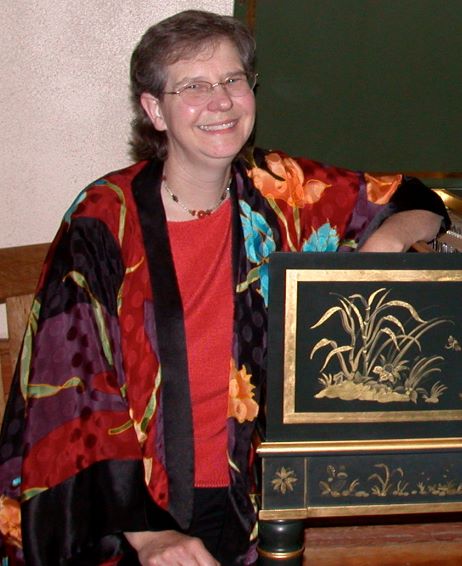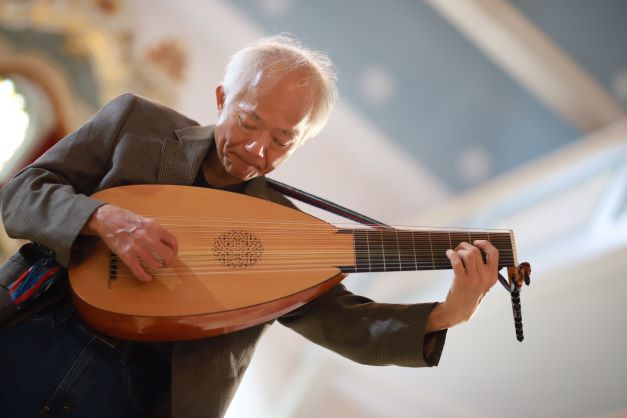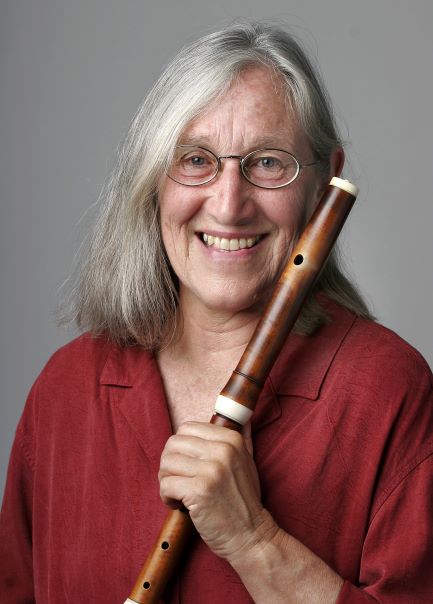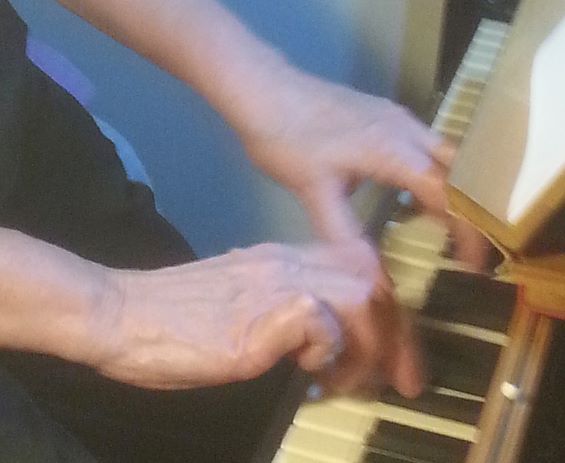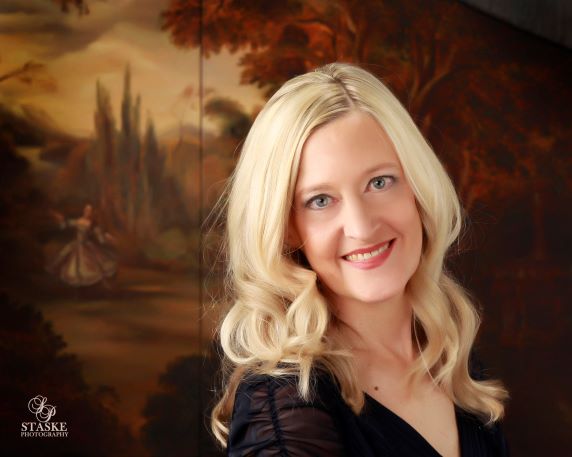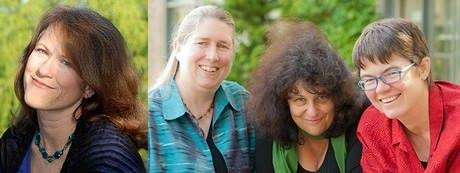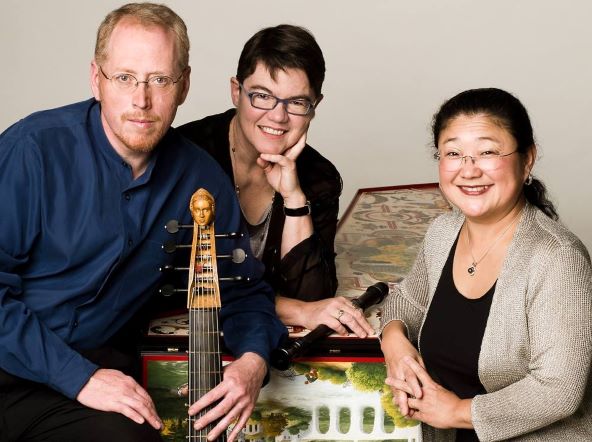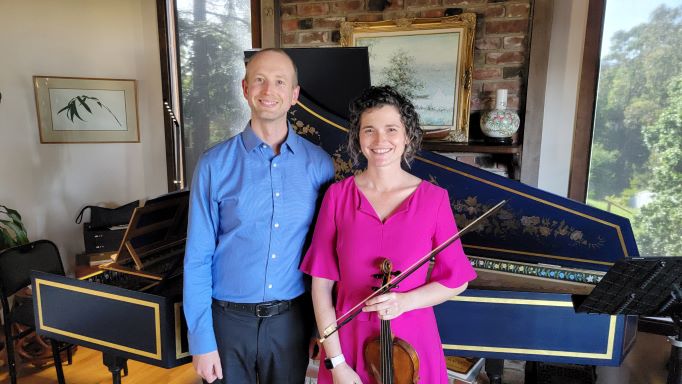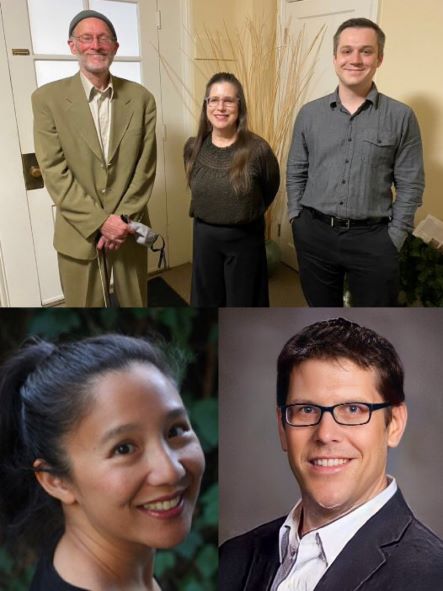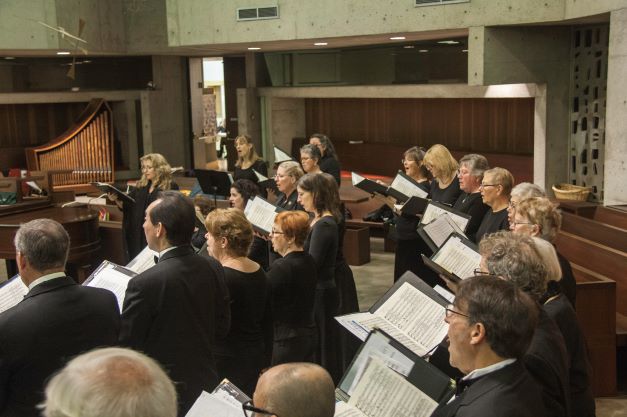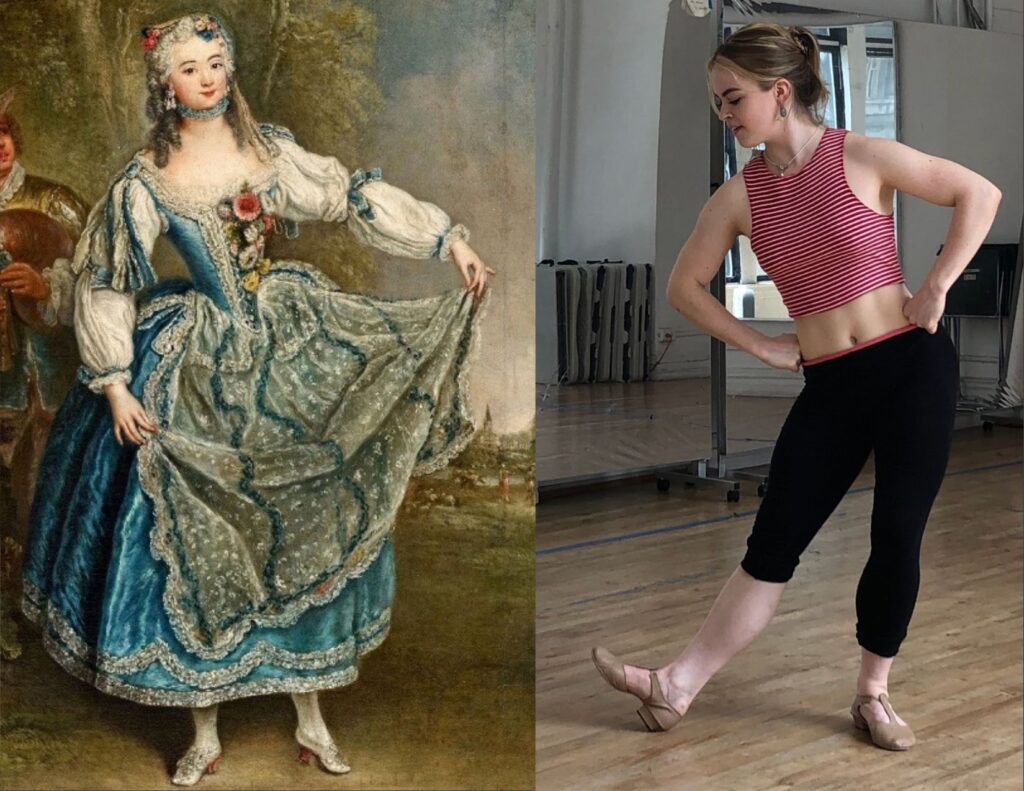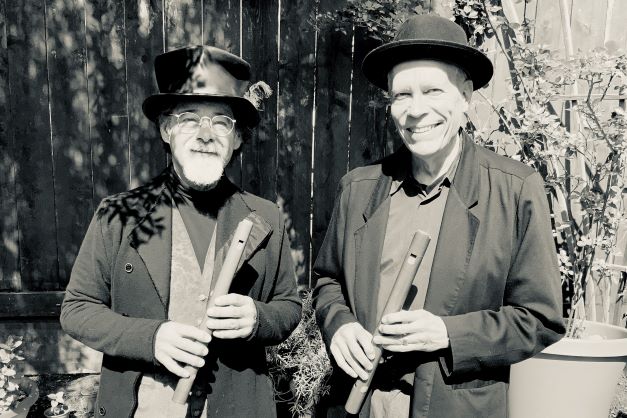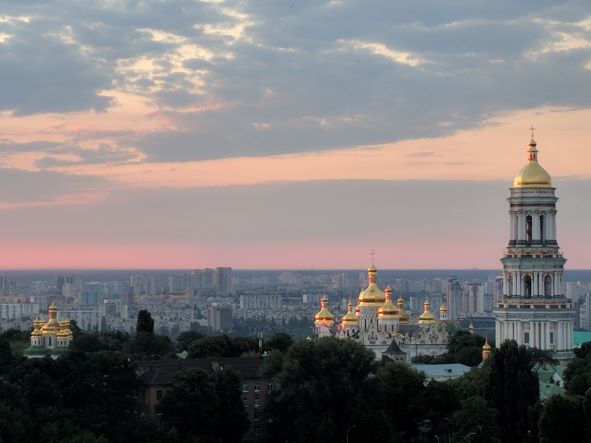One of the most exciting and varied components of every Berkeley Festival is The Fringe, a series of self-produced concerts by soloists and ensembles from around the world.
Please note that Fringe events are independently produced and priced. Tickets are available at the door or directly from the artists.
This calendar will be updated regularly to reflect additional concerts.
Sat. June 4 Ι Sun. June 5 Ι Mon. June 6 Ι Tues. June 7 Ι Wed. June 8 Ι Thurs. June 9 Ι Fri. June 10 Ι Sat. June 11 Ι Sun. June 12
Saturday, June 4, 2022
The Junior Recorder Society: Upon a Sunny Afternoon
Young Recorder players showcase their ensemble skills in this 40-minute presentation.
Works include pieces by Australian composer Lance Eccles, Jef Raskin (one of the original developers of the MacIntosh computer), and Ukrainian composer Myroslav Skoryk. Come with friends to cheer on the next generation of recorder players
*The Junior Recorder Society is an outreach program of Voices of Music *
Ensemble
East Bay children playing recorders of many sizes
Teachers:
Hanneke van Proosdij
Greta Haug-Hryciw
Andrew Levy
12:00 p.m. Hillside Swedenborgian Community Church (OUTDOORS, in the upper parking lot)
(1422 Navellier Street, El Cerrito) MAP
FREE – donations gratefully accepted
Bellarosa Vocal Ensemble: Medieval and Renaissance Song of Roses
Join four singer friends – professionals and amateurs who met in various Bay Area choirs – in an intimate a cappella concert (only 30 admitted).
This short program is presented in North Berkeley’s charming and acoustically brilliant Chapel of the Holy Nativity at All Souls Episcopal Parish (entrance on Cedar Street).
While strolling the beautiful Berkeley Rose Garden one day, we were inspired to seek out the best selections of rose-themed polyphony from the 13th through 16th centuries. Some of our favorites by Machaut, Dufay, Ockeghem, and Alfonso X el Sabio de Castile immediately sprung to mind. This theme also led to our discovery of some hidden gems such as an early Sephardic song in Ladino, and the circularly-notated, constantly modulating Rose Canon of our promotional image.
Ensemble
Caroline Jou Armitage, singer
Dane Bush, singer
Chris Willmore, singer
Melike Yersiz, singer
2:00 p.m. Chapel of the Holy Nativity (at All Souls Episcopal Parish) (2220 Cedar St., Berkeley)
Free, with suggested donation of $20
Musica Pacifica: Strudel with Espresso: The Italian Connection
Eat your strudel and drink an espresso before (COVID restrictions) you come to join Musica Pacifica in a journey of Italian virtuosity! Italian music was a strong influence throughout much of Europe, and you will experience the delicacies and the caffeinated exuberance of Italy as interpreted by Germanic composers on the other side of the Alps. We will present works by Buxtehude, Telemann, Bach, Vivaldi, Merula, and others.
Ensemble
Judith Linsenberg, recorders
Ingrid Matthews, violin
Alexa Haynes-Pilon, cello & gamba
Charles Sherman, harpsichord
6:00 p.m. Berkeley Piano Club (2724 Haste St., Berkeley)
$25
Berkeley Baroque Strings: Bach and Telemann, a Musical Friendship
Under the leadership of renowned violinist Kati Kyme, Berkeley Baroque Strings is a 30-member string orchestra of dedicated amateurs playing in the baroque style.
Program information is available here.
7:30 p.m. First Congregational Church of Berkeley (2330 Durant Ave., Berkeley)
$20, free to those under 12 years of age
Sunday, June 5, 2022
Monday, June 6, 2022
Polar Bear Oakstra of the North: The Martyrdom of Saint Mike de la Klondike (an HEPIC poem)
The Fringe is the Berkeley Festival’s gift to the community and the community’s gift to the Festival, a celebration of our diverse interests and talents — the quintessential Open Mic Night. Soon after the 2018 Festival, an HEPIC* poem surfaced, believed to be a spurious work of Robert W. Service, which for the first time recounted the little-known history of this cherished tradition and of its Patron Saint, known sometimes as Saint Michel Chevalier or San Miguel el Abierto or simply Open Mike Knight. This recitation will present the full, unredacted text chronicling St. Mike’s perilous mission to the Yukon, the miracle of obtaining arts funding, blossoming of musical awareness among denizens of the remote North, artistic triumphs and struggles, and finally, the horrific betrayal that led to his sacrifice and martyrdom. (Also a few moral lessons.)
TRIGGER WARNINGS: Text contains profanity and strong language, sexual references, tobacco use, gratuitous violence, plagiarism, hypothermia, flagrant disregard for the rule of law, excessive alcohol consumption, parallel fifths, forced and contrived rhymes, uneven temperament, obscure historical references, shameless anachronisms, unprepared dissonances, flagrant disregard for the Doctrine of Affect, cannibalism, scatology, eschatology, bad puns, worse tuning, frostbite, baroque chauvinism, plagues of insects, dismemberment of musicians, possible trademark infringement, and the wanton destruction of historical instruments. Audience strongly cautioned!
*Hardly Ever Performed In Concert
Ensemble
J.L. Harris, Evangelist, Narrator, and Sole Proprietor
2:00 p.m. Drawing Room, Berkeley City Club (2315 Durant Ave., Berkeley)
$10
Briarbird: Three Baroque B’s (and Friends)
Join Briarbird for a program of vocal and instrumental gems by Baroque composers whose names start with B. You may expect to hear Bach and Buxtehude, along with less famous masters like Bernhard and Becker, possibly even Blavet or Bodinus, in soprano solos and duets, trio sonatas, flute duets and music for violin, cello and harpsichord. Who else might appear in this mystery program? Find out in the airy and spacious Drawing Room of Julia Morgan’s architectural gem, the Berkeley City Club. Vaxx and masks, please.
Program information is available here.
Ensemble
Cathy Allen, cello
Carol Braves, violin
Peter Fisher, flute
Lisa May, soprano
Kaneez Munjee, soprano
Mardi Sicular, harpsichord
4:00 p.m. The Berkeley City Club (2315 Durant Ave. , Berkeley)
$20, or $10 for students (with ID)
Tactus SF – Early Music Community Chamber Choir: Timor et Tremor – Songs in Time of Peril
Tactus SF presents “Timor et Tremor – Songs in Time of Peril,” a 45-minute program of motets exploring how we navigate challenging times, such as heartbreak, uncertainty, and war. To what higher powers can we appeal when seized by “fear and trembling”? With the beautiful and powerful music of composers such as Byrd, Josquin, and Gesualdo, we explore Renaissance responses to peril in songs of lamentation, prayer, exhortation, resilience, and hope.
Antoine Brumel – Ave Stella Matutina
William Byrd – Ne irascaris / Civitas sancti tui
Cipriano de Rore – O Socii
Carlo Gesualdo – In Monte Oliveti
Josquin de Prez – Domine, ne in furore
Orlando di Lasso – Timor et Tremor
Tiburtio Massaino – Anima mea liquefacta est
Adrian Willaert – Dulces Exuviae
Ensemble
Elizabeth Kimble, Music Director
Caroline Joy Armitage, singer
Thomas Ayres, singer
Janet Bailey, singer
Ron Cohen, singer
Carol Henri, singer
Kristine Johnson, singer
Nick Jones, singer
Sam Lederer, singer
Jason Leith, singer
Abby Ramsden, singer
Patricia Saura, singer
Susan St Martin, singer
Richard Stanton, singer
Susan Swerdlow, singer
Melike Yersiz, singer
Barb Westree, singer
4:30 p.m. Christian Science Organization, Berkeley (2601 Durant Ave, Berkeley)
$10 Suggested Donation (no one turned away for lack of funds)
Mane Musica: Quodlibets and More
A quodlibet is a musical composition in which two or more melodies are combined. This was a popular form during the Renaissance. Our program presents two examples by Isaac, “En l’ombre/Una musquet/Sustinimus pacem” and “Fortuna/Bruder Conrad”, along with settings, attributed to Busnois, Isaac, and Josquin, of the individual melodies involved. We round out the program with a canzon by Rossi and a ricercar by Padovano.
Mane Musica is a mixed wind quartet of cornetto, dulcian and sackbuts. Our name derives from the Latin “mane” meaning either “morning” or “early”, reflecting that the first rehearsals of this early music group were during morning hours.
We will begin approximately 15 minutes after the conclusion of the program by Tactus SF scheduled for 4:30 pm in the same venue.
Ensemble
Ron Cohen, cornetto
Bruce von Kugelgen, alto sackbut
Mary Ellen Reed, dulcian
Brian Taylor, bass sackbut
5:30 p.m. Christian Science Organization at UC Berkeley (2601 Durant Ave, Berkeley)
Free (donations accepted)
Tuesday, June 7, 2022
AGAVE: Unchained Harmony
Join GRAMMY-nominated band AGAVE for an electrifying program of selections from their forthcoming album, Unchained Harmony. One of the greatest violinists of the 17th century, Bohemian fiddler Heinrich Biber’s works can be described as a dinner party of disparate sound worlds––extravagant virtuosity paired with folk melodies, church harmonies, and dance rhythms. His last published set captivates player and audience alike through unconventional violin tunings intended to achieve unique tone colors, chord possibilities, and what he called “artificial harmonies.” AGAVE offers up some of Biber’s most astounding works––Partia I and III from Harmonia artificioso-ariosa (1696)––plus Georg Muffat’s Sonata II from Armonico Tributo (1682), and a sonata by Johann Heinrich Schmelzer.
Ensemble
Aaron Westman, violin
Anna Washburn, violin
Katherine Kyme, viola
William Skeen, violoncello
Kevin Cooper, theorbo
Henry Lebedinsky, harpsichord
10:30 a.m. First Church of Christ Scientist (Sunday School Chapel) (2619 Dwight Way, Berkeley)
$20, or $10 for students (with ID)
The Albany Consort: Roaring (17)20s All Star Big Band Bash
The best of the 1720’s: HANDEL (excerpts from Clori, Tirsi e Fileno); BACH (Brandenburg Concerto 6); GEMINIANI (orchestration of Corelli’s La Folia)
Jonathan Salzedo started The Albany Consort in London in 1974. Early music performances then were mostly thick and dull, and Jonathan and his friends wanted to try something different. Half a century later, they are still trying out new ideas. The family trio of Jonathan, Marion and their daughter Laura run the group, aided and abetted in this concert by as many favorite Bay Area early music performers as Jonathan thought could be crammed onto the stage.
Ensemble
Jonathan Salzedo, harpsichord
Marion Rubinstein, organ/recorder
Laura Jeannin, violin/viola
Rita Lilly, soprano
Daphne Touchais, soprano
Karen Clark, contralto
Joe Edelberg, violin
Rachel Hurwitz, violin
Anthony Martin, violin
Caroline Armitage, violin
Daria D’Andrea, violin/viola
Liam Young-Skeen, viola
Roy Whelden, viola da gamba
David Miller, viola da gamba/double bass
Alexa Haynes-Pilon, cello
Erik Andersen, viola da gamba/cello
Laura Gaynon, cello
Greer Ellison, flute
11:00 a.m. Christian Science Organization (2601 Durant at Bowditch, Berkeley)
$30 suggested. No one turned away for lack of funds.
Peter Hallifax and Yuko Tanaka: Music by Bach for Harpsichord and Viola da Gamba
Bach’s iconic sonatas (in this case BWV 1028 and 1029) for harpsichord and viola da gamba with some solo instrumental pieces: a prelude and fugue for harpsichord, and movements from the “cello” suites for viola da gamba. All in the lovely acoustic of St. Mark’s on Bancroft. Musical food for the soul, what more could you want?
Program information is available here.
Ensemble
Yuko Tanaka, harpsichord
Peter Hallifax, viola da gamba
2:00 p.m. St. Mark’s Episcopal Church (2300 Bancroft Way, Berkeley)
$20
Tekla Cunningham and Sheila Weidendorf: Between Heaven and Earth: A Year with Brahms
Violinist Tekla Cunningham and pianist Sheila Weidendorf have spent the past year and more immersed in the violin sonatas of Johannes Brahms, meeting weekly during the pandemic to form a micro-music pod. The lockdown has forced all of us indoors and inwards, and this time of reflection and deepening has been transformative both personally and musically for this project. Brahms’ violin sonatas, full of depth and expanse, served a musical refuge from the contraction we were experiencing in the world around us. This program was part of the Whidbey Island Music Festival’s 2021 summer season. Here is one concertgoer’s account of the concert: “We not only heard the heartbeat of Brahms, and the sighing, and the dancing; we also were exposed to Brahms’ fierce grasp of nature, of a windstorm, in the thunder of the piano, and the lightening of the violin! One of the most memorable, the most unforgettable nights of my life. For my gratitude, words are inadequate”.
Program information is available here.
Ensemble
Tekla Cunningham, violin
Sheila Weidendorf, piano
4:00 p.m. Berkeley Piano Club (2724 Haste St, Berkeley)
$20
Wednesday, June 8, 2022
Ensemble Vermillian: La Favorite: Ensemble Vermillian’s Favorites!
“La Favorite”~ The title says it all! Ensemble Vermillian, specializing in chamber music of the 17th & 18th centuries , brings you some of their favorite pieces by composers from Italy, Germany, France and England. This musical kaleidoscope is sure to delight and spark your imagination.
Program information is available here.
Ensemble
Frances Blaker, recorders
David Wilson, violin
Barbara Krumdieck, cello
Phebe Craig, harpsichord
12:00 p.m. Berkeley City Club (2315 Durant Ave., Berkeley)
$15
Owen Daly & Eugene Petrushansky: Le Due Sorelle – early solo keyboard music
A mini-festival showcasing two newly-built harpsichords, by two prominent West Coast builders.
1:00-1:45 pm – Eugene Petrushansky presents a recital juxtaposing counterpoint by Trabaci, de Macque, and Correa de Arauxo with variations and intabulations by Mayone, Frescobaldi, and anonymous composers from north of the Alps.
2:00-2:45 pm – Owen Daly performs frottole intabulated by Andrea Antico, published in 1517, and other works from “around Venice”.
Instruments: Harpsichord in the late-16th-century Venetian style (C/E-f”’, 8′ 4′, iron-strung at a’ = 440 Hz) by Owen Daly, 2022; 17th-century German single-manual adapted from later instruments by Johann Heinrich Gräbner (AA-BB-C/E-c”’, 8′ 8′ 4′) by John Phillips, 2019.
Ensemble
Owen Daly, harpsichord
Eugene Petrushansky, harpsichord
1:00 p.m. St Joseph of Arimathea Chapel (2543 Durant Avenue (at Bowditch), Berkeley)
$10 (suggested donation)
Howard Kadis & Nina Bailey: Something Borrowed
A program of keyboard music transcribed for solo lute and lute/harpsichord duet. Included are works by William Byrd and Peter Phillips which were transcribed for solo lute by contemporaries of the composers. We will also present modern arrangements of some of J.S. Bach’s Organ Trios and Organ Sonatas, as well as a Trio Sonata by Antonio Vivaldi.
Ensemble
Howard Kadis, lute
Nina Bailey, harpsichord
2:00 p.m. Member’s lounge, Berkeley City Club (2315 Durant Ave., Berkeley)
$20 general, $15 seniors & students
Briarbird Consort: A Musical Offering of J.S. Bach’s Trio Sonatas
The trio sonata was as popular in 18th C. music as was the string quartet in the 19th. Bach is credited with four, including the masterwork from The Musical Offering, presented to Frederick the Great commemorating Bach’s 1747 visit to court. Briarbird performs all four in the lovely, airy Member’s Lounge of The Berkeley City Club, a faux medieval architectural gem built by Berkeley’s Julia Morgan. Vaxx and masks, please. Come at 3:30 for complementary hors d’oeuvres, juice and wine.
Any Bach repertoire is fascinating and instructive. Though only four compositions are called trio sonatas, another 18 can be played that way, and Bach shows us how: he rearranged the Trio Sonata in G for 2 flutes and bass (BWV1039) as a sonata for viola da gamba or cello and obbligato harpsichord (BWV1027)–the cello simply plays the second flute part an octave lower. Briarbird will combine them: flute, cello and harpsichord. The other 18 potential trios are the solo sonatas with obbligato harpsichord for violin (6), flute (4) or gamba/cello (2), and the six organ trios.
The G major trio for flute, violin and continuo (BWV1038) has puzzled critics, some doubting its authenticity on stylistic grounds. But the manuscript is in Bach’s own handwriting and, “If it’s by another composer, I’d love to see more of his work” (Bart Kuijken). The charming C major trio (BWV1037) is scored for two violins; we’ll play the second violin part on flute, a common 18th C. substitution.
The trio sonata from the Musical Offering is discussed in the Program Notes.
Ensemble
Cathy Allen, violoncello
Carol Braves, violin
Peter Fisher, baroque flute
Mardi Sicular, harpsichord
4:00 p.m. Berkeley City Club (2315 Durant Ave., Berkeley)
$25, or $10 with current student ID
Thursday, June 9, 2022
Heinrich Biber—The Glorious Mysteries
Around 1676 Heinrich Ignaz Franz Biber (1644–1704) wrote a set of 15 sonatas for violin and basso continuo on the 15 Mysteries of the Rosary. The Rosary is a long prayer in the Catholic church involving meditation on 15 events or “Mysteries” in the lives of Jesus and the Virgin Mary, and Biber wrote a sonata for each Mystery. In Biber’s carefully prepared manuscript, each sonata is preceded by a beautiful print of a copper plate engraving which depicts the appropriate Mystery. What makes these sonatas unique is Biber’s use of scordatura, a technique of tuning the strings in a nonstandard way; each sonata calls for a different tuning of the violin. This gives the violin a unique sound for each sonata, and offers the performer unique opportunities—and unique challenges.
Our program will introduce the audience to this fascinating and emotionally powerful sonic world and give an up-close look at how the performers approach the specific notation and the retuning of the violin for every piece. We will perform the last five sonatas, the Glorious Mysteries: the Resurrection, the Ascension, the Descent of the Holy Spirit, the Assumption of the Virgin, and the Coronation of the Virgin. Don’t miss this rare opportunity!
Program information is available here.
Ensemble
David Wilson, violin
Barbara Blaker Krumdieck, cello
Katherine Heater, harpsichord
10:30 a.m. Berkeley City Club, Drawing Room (2315 Durant Ave., Berkeley)
$15
Janine Johnson: The Orpheus of Amsterdam
Keyboard music of Jan Pieterszoon Sweelinck.
Music by a true genius at the end of the Renaissance, leading into the Baroque. Fun, complex and delicious!
Program information is available here.
Ensemble
Janine Johnson, harpsichord
10:30 a.m. St. Joseph of Arimathea (2316 Bowditch (at Durant), Berkeley)
$20
Franklin Lei, Baroque lute: Lautenmusik der Aufklärung
An iconic symbol of the German Enlightenment, the lute had 250 years of history by the 18th century, having evolved to 20 strings tuned in 11 courses. Player-composers like Jacque Bittner, David Kellner, and especially S.L. Weiss, inherited the great French lute tradition of Jacques Gallot. As solo instrument par excellence, these lute suites paved the way for piano sonatas of the Classic Period.
Program information is available here.
Ensemble
Franklin Lei, 11-course lute (Stephen Gottlieb, 1978)
1:00 p.m. Musical Offering (courtyard garden) (2430 Bancroft Way, Berkeley)
By donation, to benefit the Musical Offering
Kathleen Kraft & Friends: The Fabulous & Fantastic Flute!
Flautist Kathleen Kraft, known for her elegantly beautiful approach to baroque flute repertoire, is joined by longtime friends and musical collaborators cellist Barbara Blaker Krumdieck and harpsichordist Phebe Craig! The program includes the music of Bach, Blavet and Leclair.
Ensemble
Kathleen Kraft, flute
Barbara Krumdieck, cello
Phebe Craig, harpsichord
2:30 p.m. Berkeley Piano Club (2724 Haste Street, Berkeley)
$15
Gesine Lohr, harpsichord: Keyboard music from 1517 to the mid-1600s
Gesine Lohr will play pieces from 1517 to 1652, including several settings of the top-100 tune “La monaca” — La monaca, The Queene’s Alman, and Le jeune fillette by lutenist Daniel Bacheler (transcription by lutenist Chris Morrongiello).
From MS Castell’Arquato, Cavazzoni’s Recercada di mã ca in bologna, and the anonymous Pavana – Il saltarello – La coda. Also several anonymous Italian dances published by Gardane in Intabolatura Nova Di Balli (Venice, 1551), and two frottole by Tromboncino in Antico’s Frottole intabulate da sonare organi, 1517.
For this concert, we are fortunate to have the use of a beautiful Italian harpsichord after Carlo Grimaldi (1697), built by the late Jerry Prager in 1983. Her unusual length (8’1”) produces her extraordinary bass. There is the inner instrument, with quarter-inch walls, inside an outer case.
Program information is available here.
Please be vaccinated and boostered, and please wear a good-quality mask – thank you!
SFEMS requires attendees to remain masked while indoors and to show proof of vaccination, including booster. SEE PROTOCOLS HERE
Ensemble
Gesine Lohr, harpsichord
3:00 p.m. St. Joseph of Arimathea Chapel (2543 Durant Avenue, Berkeley)
Free admission (any donations will be happily accepted, but are utterly not required)
Charlotte Mattax Moersch: Celebrating François Couperin’s 300th!
This afternoon’s concert celebrates the tercentenary of François Couperin’s third book of harpsichord pieces, which was published in Paris in 1722. I have framed his music with that of other composers in his orbit: his uncle Louis, famous for his unmeasured preludes and passacailles; his cousin Armand-Louis, together with Claude Balbastre, representative of the next generation of composers after François; and, D’Anglebert, a contemporary of Louis whose music, like that of François, Bach admired. I also included two pieces by Antoine Forqueray, transcribed for harpsichord by his son Jean-Baptiste, the first (La Couperin) an homage to François, and the second, Les Portugaise, evocative of the French fascination with exotic cultures. Around the same time that François penned his Troisième Livre in Paris, J.S. Bach composed his Violin Sonata in D Minor, BWV 1003, in Köthen, transcribed for harpsichord by Kirnberger, one of Bach’s students. I close the program with La Blanchet, which honors Elisabeth-Antoinette Blanchet. The daughter of the most famous harpsichord builder in Paris, she later married Armand-Louis and was a virtuoso harpsichordist in her own right. In this piece, one can picture her improvising for her father’s clients, demonstrating the capabilities and wonderful resonance of his instruments!
Program information is available here.
Ensemble
Charlotte Mattax Moersch, harpsichord
4:00 p.m. St. Mark’s Episcopal Church (2300 Bancroft Way, Berkeley)
$15
Calextone: The Age of Boccaccio’s Decameron— Music of 14th century Italy
In this concert we play and sing the music that would have been played and sung by the young Florentines in Bocaccio’s Decameron. We tell the stories of love and fortune through the lens of Christine de Pisan and her Ladies, with a witty and moving script by Lawrence Rosenwald.
*SFEMS requires attendees to remain masked with a NIOSH-approved N95, KN95, or KF94 mask (cloth/surgical masks will no longer be allowed) while indoors and to show proof of vaccination, including booster. SEE PROTOCOLS HERE
Ensemble
Letitia Berlin, winds & voice
Frances Blaker, recorders
Allison Zelles Lloyd, voice & medieval harp
Shira Kammen, vielle & medieval harp
Peter Maund, percussion
4:30 p.m. Berkeley Piano Club (2724 Haste Street, Berkeley)
$15-$20 sliding scale, no one turned away for lack of funds
*masks required
Favolare Ensemble: The Divas’ Nightcap
Unwind the day with lilting arias and trios from the high Baroque.
Händel, Lully, Vivaldi
Ensemble
Jennifer Ashworth, soprano
Jessica House Steward, soprano
Stacey Helley, mezzo
Arthur Omura, harpsichord
9:30 p.m. Loper Chapel (2345 Channing Way at Dana, Berkeley)
$20
Friday, June 10, 2022
Bertamo Trio: The Shattered Consort—Beautiful, Offbeat 17th and 18th century music for mixed chamber ensemble
The Bertamo Trio is joined by friends Cynthia Black on violin and Farley Pearce on viola da gamba in a program of suites, trio sonatas, masque tunes, and more by 17th- and 18th-century composers, including Legrenzi, Frescobaldi, Merula, Purcell, Lawes, and Couperin.
*SFEMS requires attendees to remain masked with a NIOSH-approved N95, KN95, or KF94 mask (cloth/surgical masks will no longer be allowed) while indoors and to show proof of vaccination, including booster. SEE PROTOCOLS HERE
Ensemble
Letitia Berlin, recorder
David Morris, viola da gamba
Yuko Tanaka, harpsichord
with guest artists Cynthia Black, violin and Farley Pearce, viola da gamba
11:00 a.m. Berkeley Piano Club (2724 Haste Street, Berkeley)
$20, no one turned away
The Laudami Ensemble: “Going Public” in the 1700s
In this concert, we will be celebrating three German Baroque composers: JS Bach, Handel and Telemann; and the first times their works were sold to the public. We will start with a lively sonata from Handel’s “Opus 1.” We will then play one of Telemann’s “Frankfurt” sonatas, which marked the beginning of an ambitious business venture to sell and distribute his own compositions. We will round out the program with movements from Bach’s first publication, his harpsichord partitas, as well as a violin sonata that helped inspire them.
Ensemble
Laura Jeannin, violin
Michael Peterson, harpsichord
11:00 a.m. Christian Science Meeting Room (2601 Durant Avenue, Berkeley)
$20/$15
Harmonia Felice: Les Surprises de l’Amour La Lyre Enchantee
La Lyre Enchantee, Act 2 of Les Surprises de L’Amour by Jean-Philippe Rameau transcribed by Ludwig Christian Hesse for two violas da gambas with the addition of singers.
Les Surprises de l’Amour, an opera-ballet, was first performed in 1748 in Versailles with two acts and a prelude, L’Enlévement d’Adonis and La Lyre Enchantée. Later in 1758 two more acts, Anacréon and Les Sibaris were added. Each act is an independent work with different themes and characters. For example, in L’Enlévement d’Adonis, the main singing characters are Diana, Cupid, Adonis, and the concept is the struggle between love and chastity, and in La Lyre Enchantée, the main characters are Parthenope, Urania, Linus, and Apollo, and the theme is the conflict between love and indifference.
Linus, a humble shepherd and musician, possibly the brother of Orpheus, falls in love with Urania the Muse of astronomy who is indifferent to his advances. The Siren Parthenope tricks Urania by tying up Linus to a tree and laying an enchanted lyre next to the tree which makes anyone who touches it fall in love with the first person he or she sees. Urania comes upon the enchanted lyre and sings a love song to Linus. Apollo appears and clears any confusion and, in the end, the sirens and the muses unite to combine their talents and sing and dance in joy.
The transcription by Ludwig Christian Hesse enables us to portray the essence of this wonderful music, the recitatives, arias, dance movements, the colorful and expressive writing by Rameau with the bare minimum of forces particularly suited to the times we live in. The instruments take the role of the chorus as well as the dance band.
Ensemble
Amy Brodo, viola da gamba
Roy Whelden, viola da gamba
Jon Mendle, tiorba
Caroline Jou Armitage, soprano
Brian Thorsett, tenor
5:30 p.m. Berkeley Piano Club (2724 Haste Street, Berkeley)
$20/$15
San Francisco Bay Area Chamber Choir: Sacred Songs: 500 Years of Motets
Sacred texts have inspired composers across the centuries to create beautiful pieces of music. The a cappella motet tradition in particular, no matter when the piece was written, seems to always harken back to the Medieval and Renaissance originators of this genre. The San Francisco Bay Area Chamber Choir explores these commonalities and their divergences through a performance of motets from across the centuries. With new and old settings presented alongside each other, the common threads of this sacred music tradition become incredibly apparent. Maurice Duruflé pulls rich, contemporary harmonies out of the original Gregorian “Ubi caritas” chant. Francis Poulenc’s Lenten motets, “Timor et tremor” and “Vinea mea electa,” are harmonically wild in a similar way to Lassus’ “Timor” and Gesualdo’s “Vinea”. Sensibilities of Johannes Brahms’ motet “Warum ist das Licht gegeben” are evidenced first in the motets of Schütz.
Program information is available here.
Ensemble
Scot Hanna-Weir, Director
Hilari Allred, singer
Carolyn Bourse, singer
Barbara Brown, singer
Kevin Brown, singer
Carille Bruno-Thayer, singer
Ron Cohen, singer
Christine Dukey, singer
Julie Harkness, singer
Pat Jennerjohn, singer
Steve Kinoshita, singer
Dave Knapp, singer
Lisa Levine, singer
Chris Lopez-Cepero, singer
Linda McMullen, singer
Rob Miller, singer
Ryan Miller, singer
Elise Mills, singer
Brian Nippa, singer
Carol Paxson, singer
Zac Peterson, singer
Dorothy Read, singer
Melanie Spiller, singer
Scott Sterling, singer
Susan Swerdlow, singer
Janina Tamborsi, singer
Maggie Tenenbaum, singer
Ed Wilson, singer
Beverly Worthington, singer
6:00 p.m. St Mark’s Episcopal Church (2300 Bancroft Way, Berkeley)
$20 General Admission, $35 Supporters, $10 Young Audience (30 and under)
Saturday, June 11, 2022
Nash Baroque: Barbarini’s Tambourine
Nash Baroque presents a program of 18th century french music for traverso, gamba, and harpsichord together with baroque dance. With historical reconstructions and original choreography by Jennifer Meller, Artistic Director of Dance Through Time, the program features dances from Jean-Phillipe Rameau’s opera Dardanus performed by the celebrated italian dancer, Barbara Campanini affectionately known as “La Barbarina”. The performance will include instrumental works by Francois Couperin, Marin Marais, selections from the elegant “Pieces de Clavecin” by Rameau and music of Louis Caix d’Herveloix from a 1720 edition of gamba suites transcribed for traverso and continuo.
The program celebrates the reciprocal relationship that existed between music and dance in the 18th century. Through recreated choreographies of dances that Campanini was known to have performed in Rameau’s Dardanus, the audience will experience the gesture, movement and character, evident in the expressive, sensuous instrumental music throughout the baroque period.
“Barbarini’s Tambourine” refers to a popular tune that appears with accompanying choreography in 18thc. Walsh country dance manuals. The tambourin ( also known as tambourine) was a french provincial dance that had made it’s way to the stage, and for which she became famous. The tune, evoking La Barbarina’s own exuberant tambourins remains a favorite in contradance societies to this day and stands as testimony to a woman celebrated for her graceful virtuosity, strong character portrayals, and the influence she held in the worlds of both music and dance.
Program information is available here.
Ensemble
Vicki Melin, traverso
Farley Pearce, viola da gamba
Katherine Heater, harpsichord
11:00 a.m. St.Clement’s Episcopal Church (2837 Claremont Blvd., Berkeley)
$20 General; $15 Students and Seniors
Three Trapped Tigers: It’s Still All Going On Out There
Three Trapped Tigers (David Barnett and Tom Bickley, recorders) perform their unique mix of early and modern music for recorders. They bring to their music making, an intimacy and connection developed over 19 years of playing together. Their approach is grounded in historical practice and influenced by the Deep Listening of Pauline Oliveros, and a love of music from diverse cultures and styles. Three Trapped Tigers perform on medieval, renaissance, baroque, and modern recorders to bring to life a wide array of sounds and music.
The title of the program comes from Time Poem by the poet Philip Whalen which Three Trapped Tigers have realized as a recorder duo. The program will showcase diverse works from contemporary English composers including duos and solos by Gavin Bryars (Two Lines), Sir Michael Tippett (Four Inventions) and Nicola LeFanu (Dawns Dove).
Duos by American composers Tom Bickley (Looped Local Roads) and Roy Sansom (Shadow Play) and a solo by Pauline Oliveros (In Consideration of the Earth.) are also on the program.
Two-part settings of popular 16th century songs called Bicinia from the Munich Ms. 260 will be performed beside a set of contrasting Bicinia by the contemporary Swiss composer, Ulrich Gasser.
Three Tigers has a great fondness for the music of the Trecento and will perform works by Francesco Landini. All this and more to delight you on a Saturday afternoon.
PRE-MODERN MUSIC FOR POST-MODERN EARS AND VICE VERSA
Ensemble
David Barnett, recorder
Tom Bickley, recorder
1:30 p.m. St. Joseph of Arimathea Chapel (2543 Durant Avenue Berkeley)
Sliding scale: $15 – $20, no one turned away for lack of funds
The Handel Opera Project: Semele by G. F. Handel
Concert presentation of Semele by G. F. Handel
Ensemble
Angela Jarosz, soprano
Sara Couden, contralto
Ellen St. Thomas, mezzo-soprano
Shannon Latimer, soprano
Andrew Green, tenor
David Peterson, bass
Bradley Kynard, baritone
Reuben Zellman, counter-tenor
Wayne Wong, baritone
Martha Stoddard, flute
Susanne Rublein, flute
Victor Romasevich, violin
Michael Jones, violin
Nansamba Ssensalo, viola
Paul Rhodes, violoncello
Michael Peterson, harpsichord
William Ludtke, conductor
2:30 p.m. First Church of Christ, Scientist, Berkeley (2619 Dwight Way, Berkeley, CA)
$30 General $20 Seniors and SFEM
L.A. Camerata: Water, Wind, Fire, Earth: Intersecting Historical Performance and Climate
L.A. Camerata is a 501(c)3 non profit organization devoted to the performance of works by women and “others.” This program, in collaboration with members of the UCLA Early Music Ensemble, completes a year-long exploration of the intersection between historical performance and climate. We will feature works spanning the Middle Ages through Baroque era on period instruments.
*Please note that per the venue’s COVID protocol, vaccination station and masks are required.
Ensemble
Dr. Marylin Winkle, director
Ariel Pisturino, soprano
Sarah Reynolds, mezzo soprano
Ela Kodzas, baroque violin
Michelle Sheehy, baroque violin and vielle
Breana McCullough, baroque viola and vielle
Suzy Herzberg, treble viol
Marylin Winkle, baroque cello and vielle
Ray Ingersoll, trumpet and voice
Julien Knowles, trumpet
Diego Loukota, baroque guitar
Matthew Xie, baroque guitar and theorbo
Billy Traylor, harpsichord
4:00 p.m. Parish Hall, St. Alban’s Episcopal Church(1501 Washington Ave, Albany)
FREE ADMISSION (Donations welcome)
Sunday, June 12, 2022
Ensemble Cherubim: Echoes from Ukraine: Early Choral Music and Modern Poetry from the 12th to 21st centuries
At this moment, Ukraine is very much in the hearts, minds, and attention of the global community. This concert will share a rich legacy of Ukrainian music and poetry spanning centuries, resounding and asserting the existence of a vibrant, distinct Ukrainian culture. Ensemble Cherubim, acclaimed for its recording of Bortniansky choral concertos on the Naxos Label, led by Marika Kuzma, a leading scholar and performer of Slavic music, will sing Ukrainian music found in archives across Eastern Europe. The program will include chant from the monasteries of Kyiv and from Ukrainian villages, motets from the 17th century, and choral concertos by Bortniansky. The singers will be joined by some of the Bay Area’s leading actors, reciting verses from Ukrainian poets to bring this music into the present moment.
*This concert is in partnership with Nova Ukraine and the Consulate of Ukraine in San Francisco
Ensemble Cherubim
Marika Kuzma, artistic director
Singers
Ariel Anderson, bass
Jennifer Ashworth, soprano
Mike Azevedo, tenor
Edward Betts, tenor
Andrew Chung, bass
Karen Clark, alto
Sepp Hammer, bass
David Hess, bass
Jayme Koltsov, alto
Serge Liberovsky, bass
David Martinez, tenor
Andrea Mich, soprano
Charles Olson, tenor
Kim Rankin, alto
Phoebe Rosquist, soprano
Emily Ryan, alto
Amy Smith, soprano
Yumi Thomsha, alto
Brian Thorsett, tenor
Axel van Chee, bass
Angelique Zuluaga, soprano
Guest instrumentalist
Shira Kammen, vielle
Guest Actors
L. Peter Callender
Joy Carlin
Crystal Jiang
Patrick Russell
2:30 p.m.– 3:30 p.m. Hertz Hall (101 Cross-Sproul Path, UC Berkeley Campus)
$25 general admission, $35 supporter, $10 student (with ID)
THE 2022 BERKELEY FESTIVAL & EXHIBITION IS PRESENTED BY THE SAN FRANCISCO EARLY MUSIC SOCIETY

